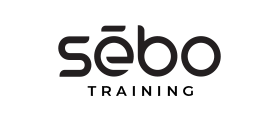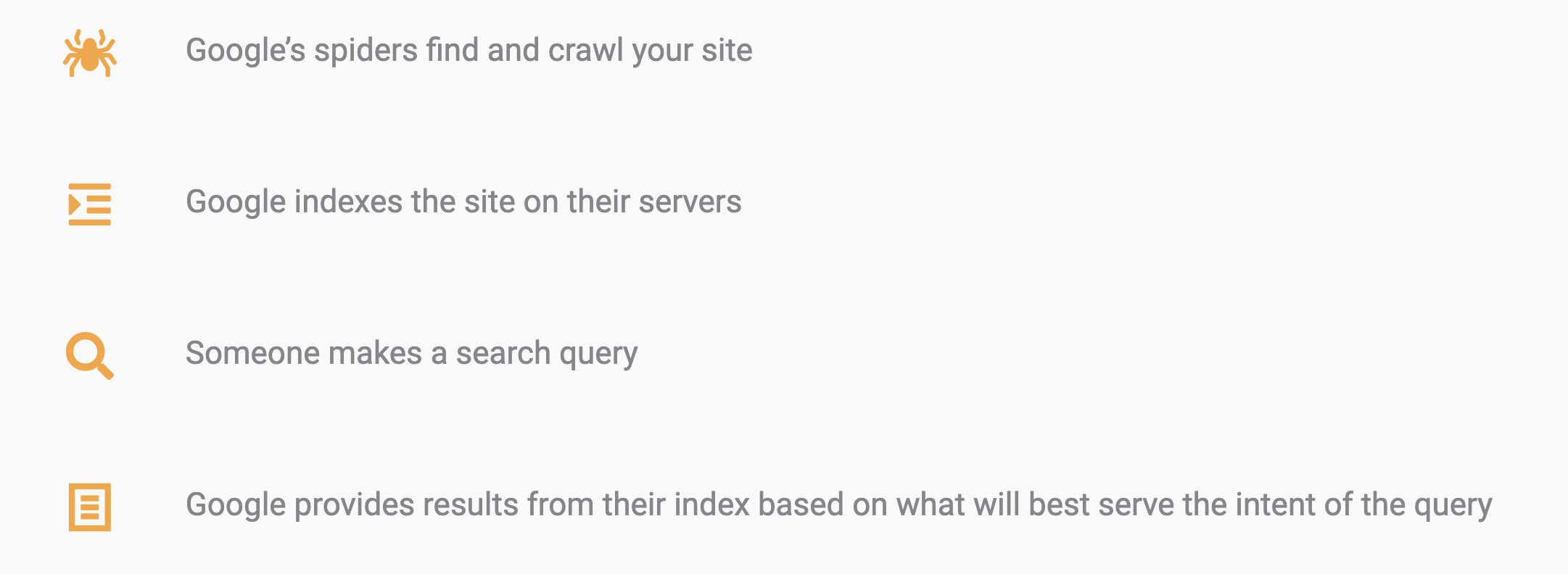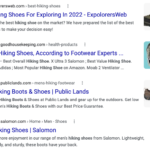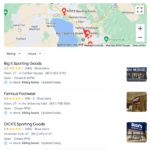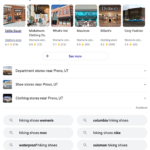Last Updated on January 14, 2025
Welcome to Sebo Marketing!
We are very excited that you are interested in becoming a Marketing Assistant here at Sebo Marketing. Before we hire new assistants we have them go through our pre-hire training and exam to make sure that Sebo and the new assistant both feel that they are a good fit.
There are several sections with brief summaries of digital marketing topics and tools. After you look over the sections and feel comfortable, please email Bruce and the Fulfillment Manager to let them know when you would like to take the pre-hire exam and be considered for a part-time Marketing Assistant position at Sebo.
Exams at Sebo are taken in-person or virtually and are more of a discussion rather than a written exam. We do not give you a grade, but we may ask you to review specific sections or retake the entire exam entirely if we feel it is necessary. Once you pass an exam you may move on to the next section of training. You can find the training path here.
You will work with the Fulfillment Manager on this training. The Fulfillment Manger will be in charge of your overall training and fulfillment work at Sebo. Feel free to reach out using the email on the fulfillment team page with any questions regarding training or task work.
Sebo is a Digital Marketing Agency
What is Digital Marketing? Digital Marketing is any marketing effort made online to build awareness or drive business to a company. These are the most common types of digital marketing:
- Content Marketing
- Search Engine Optimization (SEO)
- Pay-per-click (PPC)
- Social Media Marketing (paid and organic)
- Email Marketing
- Affiliate Marketing
At Sebo, we only directly provide services for PPC, On- and Off-Page SEO, and Paid Social.
What makes a company a good fit for digital marketing? In reality, almost every modern company could benefit from some form of digital marketing. In general terms, for digital marketing to make sense, a company’s ideal customer must be either searching for the company’s service/product or browsing the web. Yes, that basically means every business can benefit from some digital marketing.
What are the benefits of digital marketing? There are many advantages of digital marketing over traditional marketing. Those benefits can be represented by three main categories: control, tracking, and reach. We will talk about these further on.
SEO stands for Search Engine Optimization. It refers to any effort taken on or off a website to improve that site’s rankings in a search engine. Google is typically the search engine we are referring to when we talk about SEO, but efforts to optimize a website for Google Search will also have a positive impact on other search engines as well.
The steps above will provide organic results. Organic results are the web pages that Google has determined through their algorithm to be most likely to meet the intent of the query. If someone searches “buy red shoes” then the organic results will likely be pages where the searcher can buy red shoes.
You cannot purchase better rankings in the organic results. You can only implement best practices on your page to show Google that your site is relevant to the searcher.
There are multiple types of results that Google can show for any search. The page those results are shown on is called the Search Engine Results Page (SERP) and is a major factor in SEO. Your main goal when doing SEO is to get the client’s site to show up on the first page of the results.
Elements of the Search Engine Results Page
There are four main elements of the SERP. Those are paid ads, organic results, local search results, and related searches. There are, however, additional parts as well: products, knowledge graph, images, videos, and news articles. For this training, you only need to understand the four main elements.
Paid ads are shown at the top of the page and the bottom of the page. They are indicated by the small “Sponsored” at the top left of the result.
Organic results are shown in the center of the page. There are typically ten organic results per page, and they can be interspersed between the local results.
Local search results show local businesses and the business’ reviews. There is also a map included showing the location of the listed businesses.
Related searches are located at the bottom of the SERP, and show additional searches that may be of interest.
Click on the images below to see an enlarged example of each of the four SERP elements.
The 3 Main Aspects of SEO
There are three main aspects of SEO that Sebo Marketing works on with our clients. They are:
- OnPage
- OffPage
- Technical
Each one of these aspects is essential to maximize the site’s optimization for Google search.
OnPage SEO is any effort taken on the website in order to improve the site’s rankings on Google Search. These efforts include keyword implementation, site structure improvements, implementing images and videos appropriately, internal link building, and technical site improvements.
Content creation is technically an OnPage SEO effort; however, it’s important enough to be separated in the SEO discussion. With content creation, we write content to be used on new pages and to update older pages. It’s important to Google that a site is growing and not becoming stagnant, so consistently adding new content is necessary.
OffPage SEO is any effort taken off the website in order to improve the site’s rankings on Google Search. Primarily, OffPage SEO consists of building links from other websites to the client’s website. At Sebo Marketing, we use 3rd party partners to help with this process. Our main partners are The Hoth and Fat Joe. We tell these partners what quality of links we’d like, the anchor text for the links, and what pages the links should point to.
Technical SEO is the process of ensuring that a website meets the technical requirements of modern search engines with the goal of improved organic rankings. Some important elements include crawling, indexing, site speed, page experience, and mobile friendliness.
Pay-Per-Click & Google Ads
PPC stands for pay-per-click and is a form of paid online advertising. As the name implies, when marketing with PPC, the advertiser only pays for actual clicks on their ads. There are exceptions to this, but in general, this is the case. The two main platforms for PPC are Google Ads and Bing Ads. You’ll rarely spend any time optimizing Bing Ads accounts. At Sebo Marketing, we almost exclusively work in Google Ads when doing PPC for a client.
Paid results differ from organic results in that the ads rank is based on a system called ad rank instead of Google’s normal algorithm. Ad rank takes many things into account, but the main factors to ad rank are bid, quality score, and the use of ad extensions. Don’t worry too much right now about understanding ad rank. All you need to know now is that how much someone is willing to pay for a click is a major factor in the ad being shown and its placement. Paid results cost money for each visitor and organic results do not.
Google Analytics is a web analytics service that we use to measure traffic, conversions, and more. Read our training on Google Analytics to learn how we use Google Analytics here at Sebo Marketing.
Internet marketing is the process of driving traffic to websites and then optimizing the website performance over time. Because there are several factors involved in doing this effectively, the smartest effort to implement could ebb and flow over time. Part of our job at Sebo is determining which internet marketing pillar to pull each month. Read about the 3 pillars of internet marketing here.
When we have a new client come to us, the very first thing we do when we look at their site is determine where on the Website Performance Checklist they are.
You are ready for your exam!
Now that you have finished this section, you can decide if this is work you would be interested in pursuing or not. Please reach out to Bruce Rowe and the Fulfillment Manager to let them know of your decision. If you decide to continue your journey with Sebo, we will schedule a time for you to take the pre-hire exam. After you take the exam, we will get back to you with our decision within 2-3 days. Below is a link to the exam. Feel free to look over it and make sure you can answer all the questions before you take it.
Pre-Hire Exam – Basics of Digital Marketing
- Explain what Digital Marketing is.
- What digital marketing services does Sebo Marketing provide our clients?
- Give two examples of marketing services Sebo does not provide.
- What does SEO stand for?
- What is the goal of SEO?
- What is the Google Ads program?
- What does PPC stand for?
- What is Google Analytics?
- What is Google Tag Manager?
- What is Search Console?
- What is a CMS?
- Which CMS do we prefer to work with at Sebo?
- What are the 3 pillars of Internet Marketing – explain each.
- What are the 5 Steps in the Website Performance Checklist?
